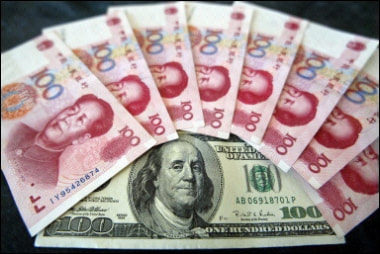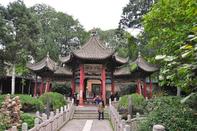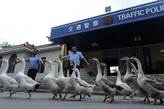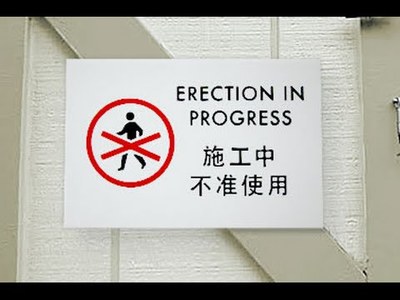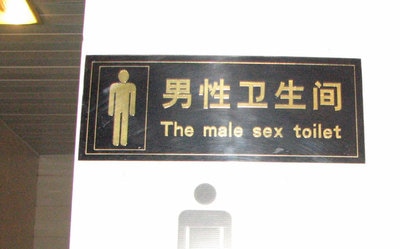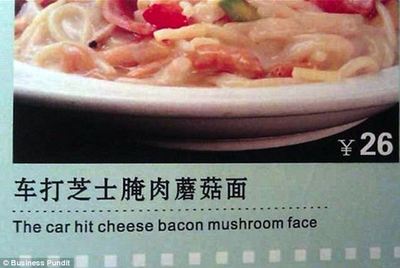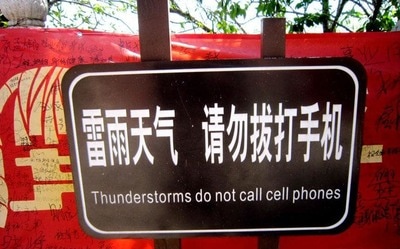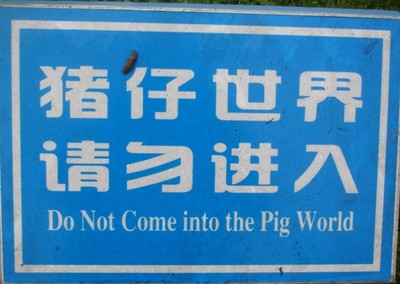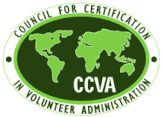Information, Culture Taboos, and other
Fun Stuff
Fun Stuff
We are bound to have a lot of fun on this trip, but keep in mind this is a country with huge language barriers, culture taboos, variant weather, and lots of pollution as well. It will be fun stumbling through translation and way over paying for a short taxi ride because all of us including the taxi drivers are lost, all while it pours rain. That is one the fun parts traveling and we will have many stories to tell for years. So be patient and relax you will be on an incredible Journey. Below are just some of the information, customs to follow, and taboos to avoid. (I will update the page if i can think of anything else)
|
Specifics about our Trip
Arrival: Claire and I will meet you at the Starbucks that is in the airport, it is the main meeting point for people in Beijing upon airplane arrival. 
Most people do not speak English in China, including hotel reception, restaurant servers, and taxi drivers (many are not from the city either so they don't know the streets very well) But at most attraction sites and subways there is English translation usually. To be more traditional and save on confusion and language barriers, it's best if one of us order all the food for the table and we share everything. We will all figure out what we want to try when we are sitting down. That way people get to try different foods and we don't have leftovers. When it comes to paying the restaurant bill, splitting the cost evenly usually works best. If one person orders a bunch of sodas, beers, or a lot of food, then they can chip in a little more for the balance. When we arrive at each hotel Claire or I will approach the desk and explain the 4 booked rooms and usually hold onto the passports till after check in to make things simplified. China weather is unpredictable so expect rain and days of high pollution. and since the average temp is 86 and humid be prepared to sweat. As in most countries throw your used toilet paper in the trash not in the toilet.
Food Taboos
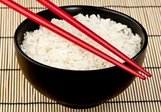
If you ask a local what Chinese people what they eat the answer is usually "we eat everything." They mean that in many ways, for one it is impolite to take more than you can eat and secondly they have a wide variety, in fact there are 8 major cuisines, and they use all parts of the animal and fish, some of which you would never normally usually consider eating at home.
Chinese Concerning chopsticks, you should always place them horizontally over your bowl. Do not lay them on the table or stick them vertically into the rice bowl as this is a sign of offering a sacrifice Do not bang your chopsticks on your bowl like drumsticks as it is a sign of begging. They are not to be used for gesturing to items or individuals. Make sure the spout of the teapot is not facing anyone. It is impolite to set the teapot down where the spout is facing towards somebody. The spout should always be directed to where nobody is sitting, usually just outward from the table. Do NOT Drink the Tap water in China. Buy bottled water or boil hot water. While some restaurants may offer free water it is safest to drink bottled water. We usually use bottled water for brushing our teeth as well. Use the serving spoons to dish out food rather than your own chopsticks. Don't order pork in a Muslim restaurant and don't expect alcohol to be served. DO NOT TIP it can be considered rude, the only exception is if we do a tour that has foreign guests and then the guide may accept tips. Do not use a toothpick in public without covering your mouth. When someone pours tea into your cup, you can tap the table with your first two fingers two or three times, showing thanks to the pourer for the service and of being enough tea. The pourer will stop pouring when seeing the gesture.
In the case of fish, flipping yours on your plate might rock the boat. Literally. It all has to do with an old fisherman ritual, in which they believed that if they were to flip their fish (to remove the skin) it would cause their boat to capsize on their next trip out to sea. Instead, to remove the skin from your dish, pull it from its underside. Old Chinese tradition also leads many to believe that long noodles are telling of the long life that you are destined to lead. Presented with a steaming bowl of long noodles? Don’t even think about cutting them! Cutting them is symbolic of one cutting a long life short. Clothing
While mainland China is fairly modern and a lot less strict on conservative standards then it used to be, remember you are an outsider and held to a higher standard than their own citizens. You will see the younger generation in miniskirts, short shorts, and tank tops, however this is also frowned upon by many people in China, and as a "waiguoren" even more so. Think of it as dressing respectful when visiting someone's house, even though they may be in shorts and a t-shirt. It is the respect you are offering them as a guest. So here are some suggested clothing for your comfort and respect of the culture at the same time. First of all, loose and moisture wick clothing are always a great idea. Quick drying clothes are a must, as laundry will most likely be done by hand. Pack some soap in a small bottle (concentrated is best) to hand wash your clothes during the trip. Pants: Zip off pants or carpris are a great choice as they are long enough to be able to enter any sight and yet give you some cooling effect of traditional shorts. If you do choose to wear regular shorts try to wear some that come down to your knees. Shirts: T-shirts are fine as long as they cover your shoulders, but then you should carry a long sleeve or 3/4 length shirt with you for Temples and Mosques (some have stricter rules than others), plus it is another shirt to change into if you get too sweaty. Shoes: Waterproof hiking shoes (with good insoles) are best for the day adventures, as we will be doing a lot of walking. I also suggest a pair of river sandals for a 2nd pair of shoes, for when we do the night market and more relaxing days. Money Matters
Credit cards from other countries are not accepted a lot of times in China, therefore as a suggestion, bring cash to exchange. Chinese ATMs may accept US cards but not always and have a tendency to run out of money over weekends. Bank fees in China can be excessive when a change in currency is involved, so it is best to make a large transaction once rather than several over an extended period. Banks will only accept foreign bank notes that are undamaged. Notes that are even slightly torn or inked will be rejected. Fake bills do circulate so be careful:
|
Safety
Overall, Beijing is a very safe city. Violent crime is extremely rare, and it's not a problem to walk at night in urban areas. Beijing also enjoys the reputation of low crime rates in Asia and even the world.Some petty crimes such as pick-pocketing do happen, and one should be cautious in shopping areas, tourist sites and public transportation. And some scams do occur
Use small bills when ever possible as sometimes people will switch real bills for counterfeit bills and claim that yours is counterfeit While not technically a scam beware restaurants where the plates/cutlery/tableware is wrapped in plastic. You would normally just open this and use these plates to eat your meal however if you do they will add a "tableware" charge (often 15 yuan per set) to your bill. If you object they will show you some small print on the menu showing the charge but it is never explained up front to you when you order. When crossing the road in China, assume that none of the road users will give way to you, even if a policeman is present. Use zebra crossings but most drivers won't stop. Always look around as a car or bike may be right behind you or heading straight for you. Should you find several cars and bicycles veering towards you from different directions, do not try to run to safety; instead, stand still. There is strength in numbers, so when a mass of people crosses together cars are more likely to stop or slow down While street is food awesome, expect to use stomach meds as you body is not used to the foreign foods, hot sauces, oils, and just the soil it is farmed in, also China standards are not up to the USDA standards so if you have a sensitive stomach be prepared. As travelers diarrhea is common all over the world you will be more than likely not feeling to well sometime on the trip. Just ask for something we have plenty of meds and don't be embarrassed. Religious Customs
People often feel concerned about talking in temples. This is really not a problem, so long as you don’t shout. Most temples will not have any rules about being silent. If there is a silence policy, then it will be clearly signed. So feel free to talk quietly.
In China, you can photograph outside the halls, but not inside. You can also ask questions. If there is a friendly looking monk or temple official, then you can approach them and find out more about the temple. There may be a minor language barrier, but in my experience, they are almost always delighted to try and help you. If you are really lucky, they might even help you light some incense and do a small ritual. The only caveat is not to disturb them when they are busy; try not to interrupt any ceremonies or temple business. InBuddhist Temples: -Take off your hat. -Remove your shoes before entering many homes or temples -Don't point directly (if you want to indicate a statue and have to use your hand, gesture palm up, fingers flat and together, in that direction) -Don't dip your fingers in the yak butter Candles in the temple, to taste the butter, apart from being highly offensive, it's also a health risk (I am talking to you Jack) -Avoid walking between a person praying to the Buddha and the statue. - Women shouldn't give the Monks hugs or touch them (I am talking to you Mary Beth) In the Mosques: - Cover your arms to the elbow, and your legs above the knees. - Wearing a scarf over the head is a courtesy (Diane I hear you have great scarf that some awesome couple bought you for just such an occasion) - Don't shake hands with the opposite gender Generally Acceptable
(But capris are better) NOT Acceptable
Politeness
The Chinese waiguoren, meaning foreigner, has no negative connotations in China, The term laowai, literally translated as "old foreigner", is not derogatory either. You'll find that personal space in public (especially on public transport) is quite uncommon — Chinese in crowds may be more pushy and crush up against others for a place in line or a seat, watch for pickpockets. 
“Excuse me” is not used as often in China. People are expected to give way naturally to one another on the street or when walking around, without anything being said. Personal space exists within oneself in China rather than in a meter (yard)-wide radius around the person. Being bumped or jostled when pushing through a crowd seldom produces an apology of any sort and is seen as a normal part of life (be wary of pick-pockets if this occurs) Passing wind or loudly clearing one’s nose and throat is common. It is seen as something natural, and therefore isn’t followed by “excuse me”. There is also a lot of spitting in public in China.
Don't photograph the elderly without permission. When somebody offers you their business card or a gift, accept it with both hands. Also use two hands if you are offering your business card or gift to somebody else. If you receive a gift, appear thankful to stop the giver losing face, and don’t open it until later, as this is bad manners in China.Keep calm in negative situations diplomacy is best in China. Tolerance is one of the great virtues of the Chinese people, which allows so many people to live their lives in close proximity with a relatively low level of stress. The frequent shouts of “hello” may be common. In the majority of cases the shout of “hello” has no purpose other than to try out the single word of familiar English that the unthinking shouter has, and to see what reaction the foreigner has. Don't point at people or beckon with one finger when you are communicating with them. Instead, motion with the palm of your hand. When you meet a stranger, it might be best to simply greet verbally instead of trying to shake hands unless they offer first. It is rude to show the bottom of your feet or your soles to others. So when you sit and cross your legs, try to point your feet at a spot where there is no one present. Fun Facts
Police will sometimes use geese instead of guard dogs
Men should never wear green hats it is a sign that their girlfriends are cheating on them. You should not offer to share a pear with your Chinese friend and cut it into two halves, as it implies separation. The number 4 is bad luck however the number 8 is a good luck number. Much like 13 and 7 in the West. You may be asked to take pictures with locals, (they especially like blonde haired people). You may bring small trinkets from home to offer as gifts to people if you choose. (We collect local sports team pins from the thrift stores to give away on occasion) Poor English and spelling mistakes on signs, clothes, adverts, everywhere, are a common source for amusement. (On more than one occasion we have had fun with this with menus. Items to describe "crispy pig" is sometimes translated as "burnt ham" or "Llama stewed in garlic sauce" is translated as "drunk monk in spicy oil"). |

